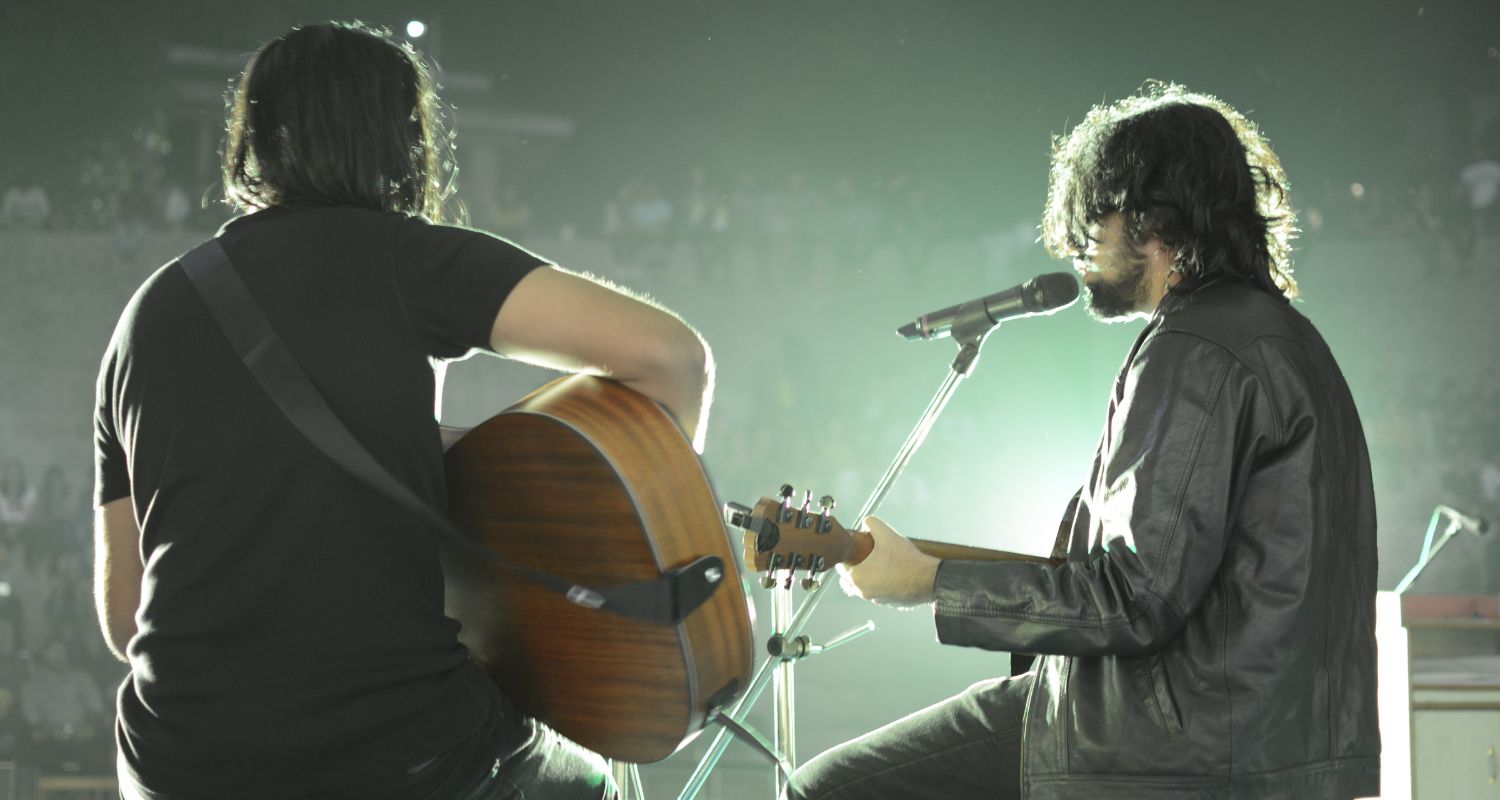
Our favorite music, whether R&B, pop, classical, heavy metal, or avant-garde, not only gives us a sense of joy- but it can also be incredibly nourishing for our health in a report from the NorthShore University System, “Research has shown that blood flows more easily when music is played. It can also reduce heart rate, lower blood pressure, decrease cortisol (stress hormone) levels and increase serotonin and endorphin levels in the blood.”
Music can take us to new places within ourselves and this is true whether you are an aficionado of music or making music yourself. However, as music lovers, it’s important to pay attention to hearing health. If we aren’t mindful, we could end up with permanent hearing damage which keeps us from fully experiencing the sounds we love.
Musicians with Hearing Loss
Hearing loss among musicians is common. While many people assume this pertains to musicians who make amplified music such as pop, techno, rock, and rap, it affects classical musicians just as much, if not more. This is due to the nature of sound and how it can damage the ears. The loudness or volume of sound is measured in decibels and any decibel over 85 dBA can damage hearing after 8 hours of constant exposure. However, as the level of sound rises, the time it takes hearing to become damaged quickly shrinks. While amplified musicians may produce loud sounds at concerts and even while practicing, classical musicians are faced with different factors. This includes the long hours of practice that classical musicians often participate in. Even at a more moderate decibel level, long hours of practice lead to dangerous levels of exposure for classical musicians. It’s cautioned that anyone who loves to play music, take extra care when doing what they love, to avoid hearing damage that will last a lifetime.
Protecting Your Hearing When you Make Music
The best way to protect your ears when playing or listening to the music you love is to wear hearing protection. There is a wide range of ear plugs and protective earmuffs which can limit decibels to your ears by 15 -33 dBA. From rehearsal to on stage, earplugs are the way to go. There are earplugs made specifically for musicians, which absorb the noise pressure that can cause damage to your hearing without compromising sound quality.
Coping with Hearing Loss as a Musician
If you have experienced some degree of hearing loss due to your career, it’s important to remember that despite hearing loss, musicians can still be very successful. This means protecting your remaining hearing but requires further action. While hearing can’t be restored it can be amplified effectively using hearing aids. Hearing aids are electronically powered and can be programmed based on your hearing exam, to amplify only the sounds you struggle with. For musicians, there are actual listening settings specifically for those who play music. While speech has a stark range of sound, music often shifts from highs to lows and from subtle to robust. It’s these nuances that are often lost when listening to hearing aids in the speech setting. However, it’s important to invest in hearing aids, equipped to deliver the full range of sound you require whenever you may need it.
Hearing aids for musicians have sophisticated digital programming which allows for a balance of musical sounds – making sure the highs, the lows, and all the in-betweens have a chance to ring out and help deliver to the deep place in our emotions where we feel moved. This is the power that music can deliver when properly enhanced.
Program It the Way You Want It
Make sure your hearing is programmed for the type of music you play. A classical musician will have needs a different level of amplification when compared to a rock guitarist. Fortunately, the latest in hearing technology allows for a wide range of programming. A lot of amplification can even be stored and remembered by digital hearing aids equipped with machine learning. When you enter a performance or practice space your hearing aids can remember the setting you prefer for the music you love and live to make.
